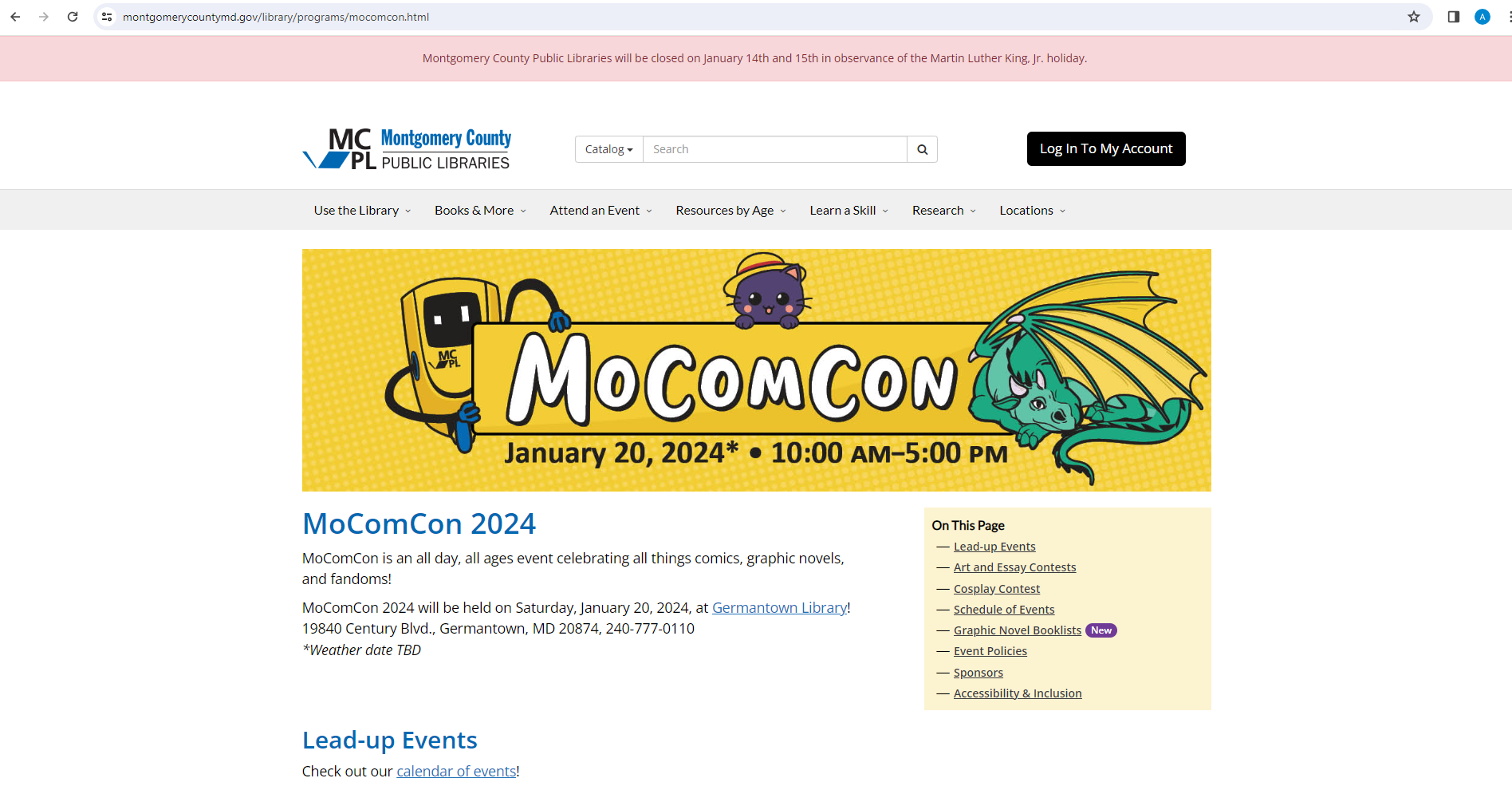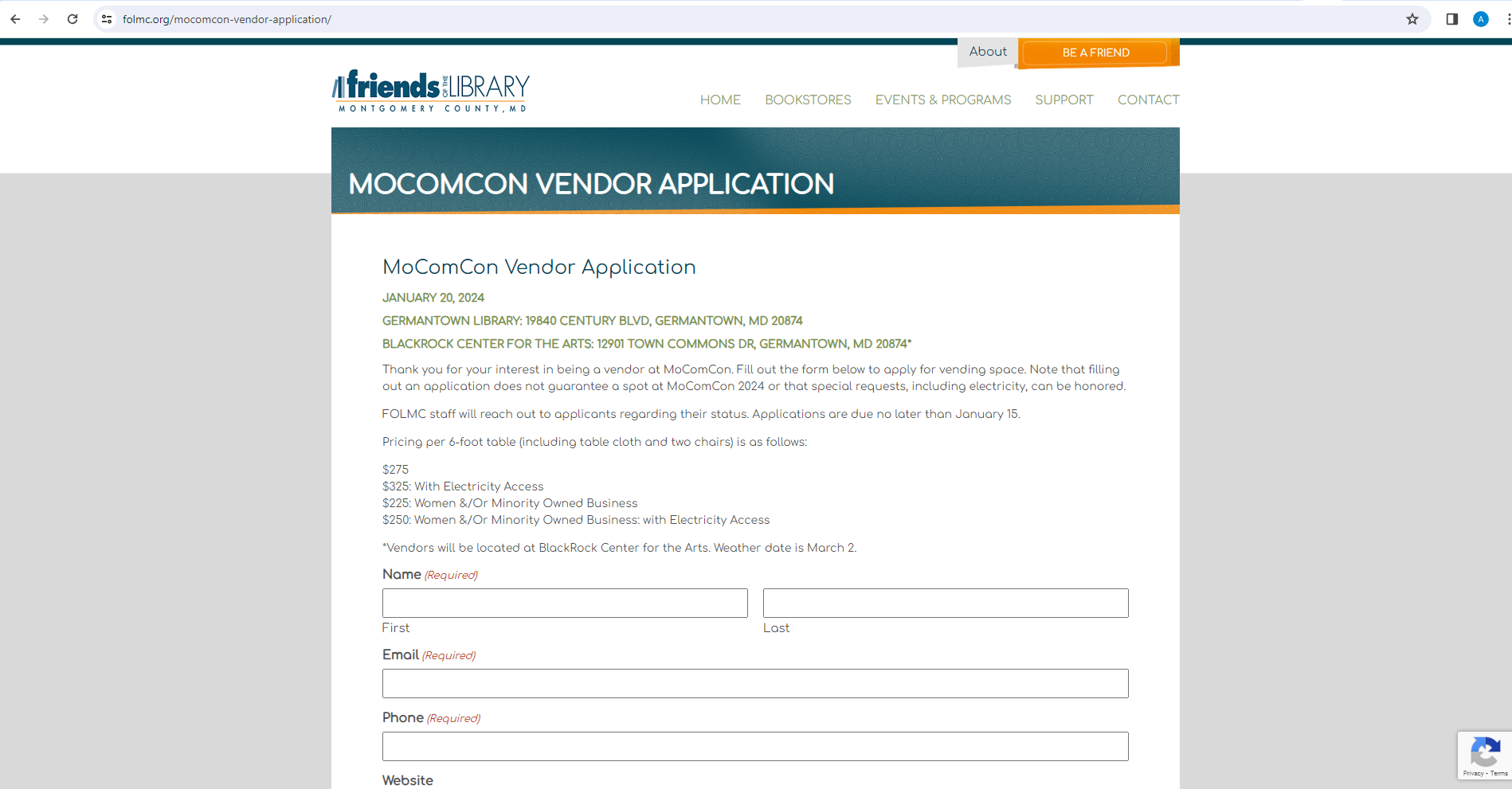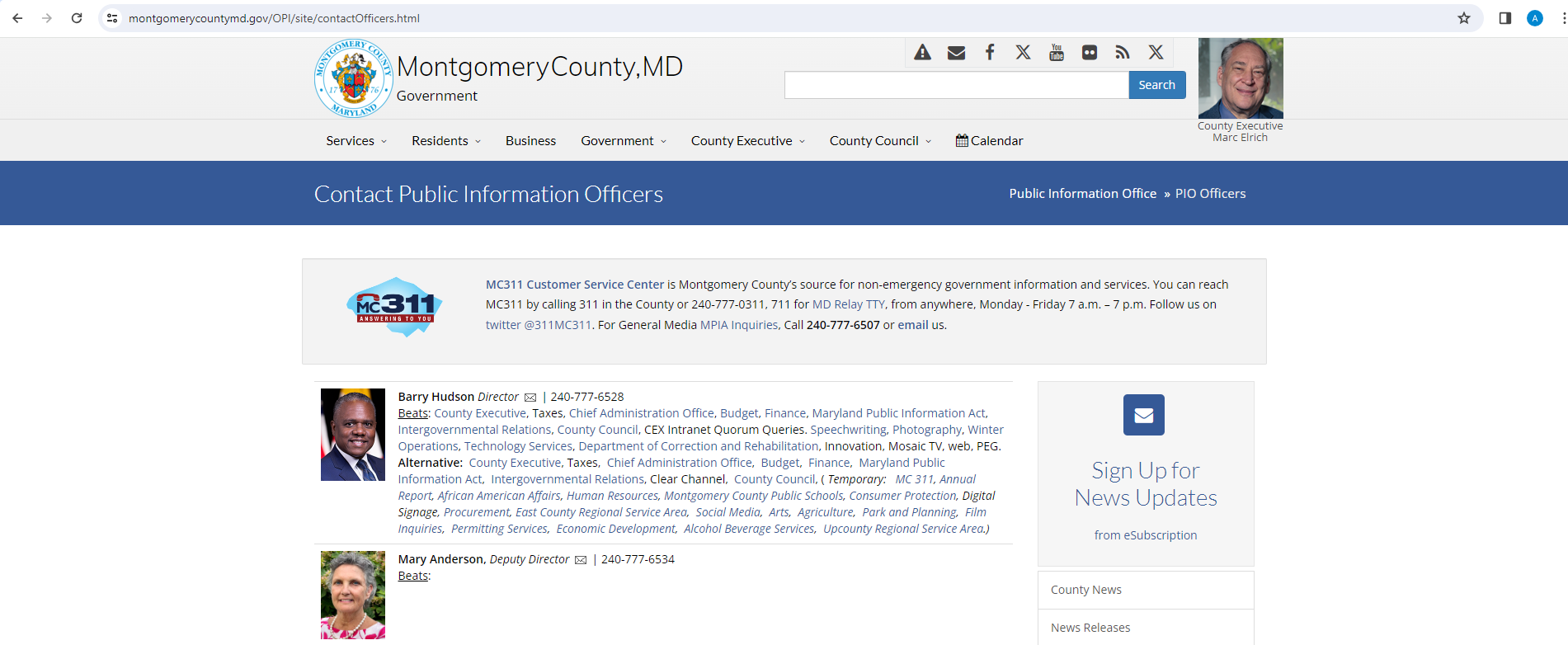By Adam Pagnucco.
Last week, the Washington Times reported that a county government-promoted comic convention held in a county library charged different rates to vendors depending on their race and gender. If true, this is a violation of the county’s own anti-discrimination law.
The Times article is about the latest MoComCon, an annual county-sponsored comic book convention which is being held this coming Saturday at the Germantown public library. While the event is held at a county library and is promoted by the county, it is being run by Friends of the Library Montgomery County (FOLMC), a non-profit. FOLMC is legally separate from county government but it did receive a $25,100 county capital grant in FY14.

Montgomery County Public Libraries promotes the MoComCon on the county’s website.
The Times reported that the MoComCon charged vendors different rates depending on their race and gender. According to the article:
An application for vendors posted on the MoComCon website lists the various rates. A table for a woman- or minority-owned business is $225 or $250 with electricity access. The rate for a business that doesn’t identify as woman- or minority-owned is $275 or $325 with electricity.
Earlier listings for the vendor application list the $225 price for those who identify as Black, Indigenous or people of color, plus $250 for those who need electricity.
The $275 price was listed for “regular” people who want to be vendors. While MoComCon is held at the Germantown Library, the vendors will be located at the nearby BlackRock Center for the Arts.
“Regular with Electricity Access: $325,” the application read.
While the original rates are no longer posted, the revised rates still appear on the Friends of the Library’s website as shown in the screenshot below.

The Friends of the Library’s executive director defended the rates, telling the Times, “The vendor pricing reflects our joint commitment to promote inclusivity in library programming and expand opportunities for groups who have been underrepresented in this industry.”
Mary Anderson, the deputy director of the county’s Office of Public Information, also defended the rates. According to the Times:
County spokeswoman Mary Anderson said this year’s MoComCon was set up to be “as inclusive as possible” because similar events around the country are typically geared toward White people.
She said the vendor pricing is “a specific push to especially attract that type of vendor so that attendees who were also focused on trying to reach minority, Black and Brown communities, that they have vendors as well.”
“Many minority vendors and younger startups and that sort of thing, they generally are in a financial position that it may benefit them if there is a reduction in price,” Ms. Anderson said.

The county’s deputy director of public information thinks the rates are fine.
Montgomery County has a law prohibiting discrimination in public accommodations. Sec. 27-10 of the county code holds that this law “applies to every public accommodation of any kind in the County whose facilities, accommodations, services, commodities, or use are offered to or enjoyed by the general public either with or without charge” and goes on to offer many examples. One of those examples is “places of public assembly and entertainment of every kind,” which presumably includes the comic con.
Sec. 27-11 goes on to ban specific kinds of discrimination in public accommodations and begins with this language:
(a) An owner, lessee, operator, manager, agent, or employee of any place of public accommodation in the County must not, with respect to the accommodation:
(1) make any distinction with respect to any person based on race, color, sex, marital status, religious creed, ancestry, national origin, disability, sexual orientation, gender expression, HIV status, or gender identity in connection with:
(A) admission;
(B) service or sales; or
(C) price, quality, or use of any facility or service;
And so assuming the Times’s reporting is correct – and the county did not dispute it in the article – the county is defending a practice at an event that it is actively promoting that is illegal under county law.
This does not inspire confidence in the administration of county government.
